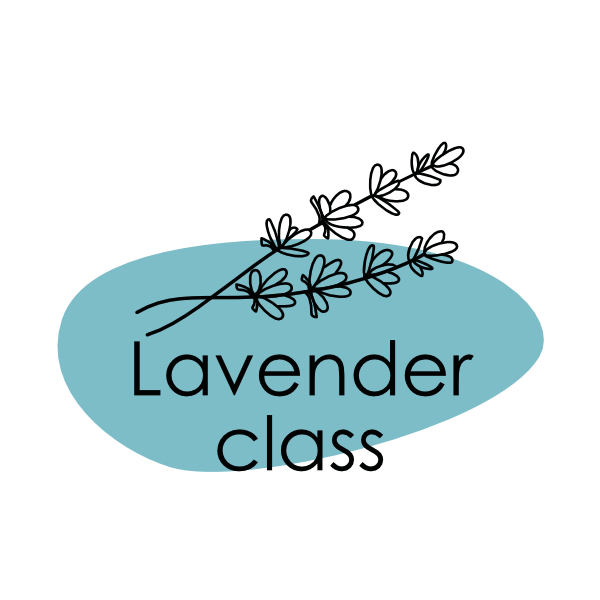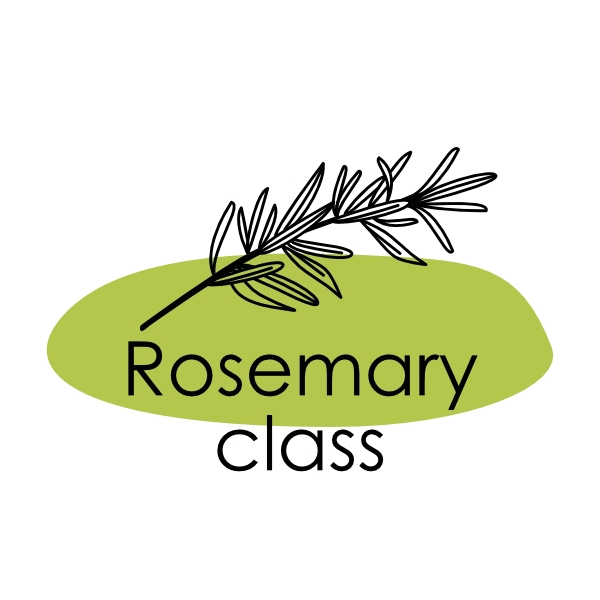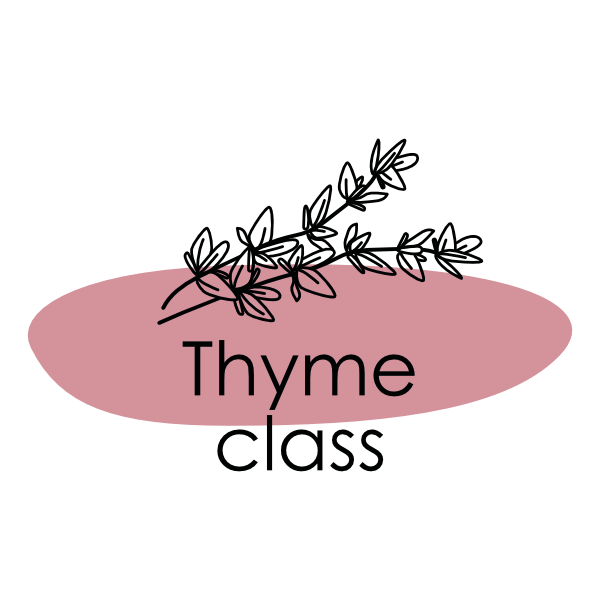Our mission
Our mission is to guide and empower each child as she grows in her independence. We follow the Maria Montessori ethos with a strong emphasis on learning through play to develop independence. We operate a culture of respect in how we speak to the children, how we expect them to treat others and the environment in which they play and learn.
At our nursery První krok, we have extremely high standards in terms of both care and staff. Our employees are highly-trained, professional and passionate about guiding children through their early years of learning. We are proud to promote Montessori ethos in a pleasant and productive environment for one to three years old children. In all our classes there are three regular teachers, that you will meet every day. Our maximum capacity is one teacher per 6 children.
All our classes are named after herbs:




History of our nursery
The nursery Maloušci was founded in year 2010 by Ivana Procházková. In 2022 the name changed to První krok along with the logo, but our methods and approach remained the same. We use proven educational techniques, that went over a decade of development.
Did you like our approach and methods? Do you want to continue your child’s education in a Montessori kindergarten? We closely work with Montessori kindergarten, founded by Ivana Procházková, where your children can continue their way to independence.
Environment
The prepared environment is one of the core components of the Montessori philosophy. Our Montessori classrooms support your child’s drive to do things alone, developing confidence and a sense of competence. In this environment, children work independently, observe others, explore freely, and express their curiosity and creativity. A self-care area fosters toilet awareness and independence in maintaining personal hygiene, such as learning how to wipe one’s nose and wash hands independently. There is also an area for gross motor activities to help children coordinate their movements, and low tables that enable them to help prepare, serve, eat, and clean up their snacks and meals. This freedom helps children develop positive relationship with “work”, which leads to motivated, independent learners.
Every classroom comes equipped with the full range of the high-quality Montessori materials. These materials are designed to foster concentration, problem solving, and a sense of achievement. All learning materials are easily accessible to kids. Equipment in our classes supports gross and fine motor skills. Child-sized furniture, utensils, and other tools enable children to make independent choices and complete activities, which builds self-confidence, concentration, and critical thinking skills. We simply want to create a quality environment that promotes the child’s natural curiosity and helps them to develop their potential in the spirit of Montessori motto “help me to do it myself”

We follow the Montessori principles, with a strong emphasise on learning through play. All our classes provide the same opportunities for all children to gain a valuable education through enhanced wellbeing and experiences.
Our approach is built on a deep respect for the individuality of each child and a strong belief in their potential. We are providing a calm, safe, nurturing and stimulating environment where children feel happy and welcomed.
Children learn best when they are following their interests. Children guide the activities that they wish to explore throughout the day. Our classrooms are designed around the children’s particular needs and abilities, that way they can learn at their own peace.
We encourage children to develop their independence skills, allowing them to make their own choices. Children learn to take pride in their own accomplishments rather than only doing tasks to seek an adult’s praise. This helps them to seek out challenges more often and attempt tasks because they simply feel good.

Our goal is to do everything possible to enable the child to independently and continuously acquire new skills and knowledge. This requires a prepared environment and a guide to support him/her in his/her development. In short, we need to give the child the space and time he or she needs at the time and help when he or she wants it.
This is a stage of natural development in which the child is able to learn certain skills quickly and easily, but at the same time can be very sensitive. Children are motivated at this time to engage in certain activities/interests that they are most drawn to. If this stage is not used, the child will learn it later but with more effort and more time.
It is good to emphasise the involvement of the senses (the more the better) in activities. Working with the hands is essential for children to understand phenomena, developing thinking and language – from grasping to understanding.
The child chooses which tool he/she wants to work with, when he/she wants to work with it, but also where he/she wants to work with it. In making this choice, the child is also responsible for this choice and others respect this.
This is the child’s ability to focus intensely and for long periods of time. It has three stages – the first is that the child looks for what would interest him. The second is concentration – the longest phase, the child has found what interests him and is working. The last phase is satiation – the child finishes the work, cleans up after himself and is satisfied. The child gets into the polarisation of attention through practical life (e.g. developing fine motor skills, guiding the child to be able to maintain attention and self-control).
Children work in mixed age groups (e.g. 3-6, 6-9, 9-12 years). These groups encourage children to cooperate, make decisions, be patient, tolerant, help each other, be considerate, etc. At the same time, they can also learn from each other and be inspired.
Montessori pedagogy is the oldest system of education still in use. The spiritual mother of this method was the Italian physician Maria Montessori, who began creating her method more than 100 years ago. Since then, Montessori education has been boasted by a number of prominent and successful personalities including Jeff Bezos (founder of Amazon.com), Jacqueline Kennedy Onassis (former First Lady of the United States), Gabriel Garcia Marquez (Nobel Prize winner in Literature), Princes William and Harry (sons of Princess Diana), T. Berry Brazelton (world-renowned pediatrician and author of books on childhood), Bill and Hillary Clinton.
Maria Montessori developed an extensive set of teaching aids for her method, the simplicity and genius of which still amazes many educators and parents. Most of these aids are made of wood or other natural materials and surpass many of today’s educational toys in purpose.
When reporters asked the founders of Google – Larry Page, Sergey Brin – to what they owe the amazing skills that led to the creation and successful development of the world’s most widely used Internet search engine, they expected the answer to be praise for the prestigious Stanford University where Larry and Sergey met. What was even more surprising was the answer that the foundations of their intrinsic motivation and interest in learning and changing for the better came from the Montessori preschool where both entrepreneurs began their educational process.

Montessori pedagogy is based on the use of the so-called sensory periods in the child’s development, which allow the child to easily and naturally acquire certain skills and knowledge to which he or she has a heightened sensitivity during this period. Children unconsciously know what to focus on and show interest in the activity or knowledge. If given the space and appropriate stimuli to develop during this period, children learn very quickly and with gusto. If we miss the opportunity to teach children a skill during the sensory period, they still have a chance to learn it, but it will cost them much more effort.
One often cited example of the sensitive period is the time when a child is programmed by nature to learn languages. This period begins at birth (some researchers believe perhaps even earlier) and ends around the age of six. The child can easily learn his or her mother tongue and other languages. Learning other languages at this early age is not only easy for the child but also very helpful in further development. Modern findings in neurology show that learning another language will create a number of connections in the brain that will strengthen the child’s intellectual capacity overall.
Another sensitive period that would be a shame to miss is the period of learning order. This also begins at birth and reaches its peak between 18 months and 2.5 years of age, then gradually tapers off until the age of 5. At this time, children have a desire for consistency and repetition. Children love routine activities that are repeated regularly and deviations from the daily routine disturb them. Even the fierce period of defiance that sets in around the second year is justified by the toddler’s overreactions to deviations from routine, which often go unnoticed by adults. During this period, children love order and especially when every object or toy has its place. If we organize the child’s environment at this age and let the child put the toys in their own places, we won’t have to teach them this for many years to come.
The Montessori method helps children develop their senses and lays the foundation for a healthy curiosity and interest in further learning. The child chooses for himself what interests him and learns to a depth that interests him. It is therefore not uncommon for children in Montessori kindergartens to learn things in mathematics, geometry, geography and biology that are not normally discussed until the first grade. It may also come as a surprise that the sensitive period for learning to read and write is around the age of four – if given the opportunity and the right stimuli, children will readily teach themselves what most children learn with much less enthusiasm at school.
The goal of the Montessori method is to teach children to respect themselves, other people, and their surroundings. In a Montessori environment, children learn to develop their individuality in the context of the world in which we live. They are then self-confident, able to analyze and react to facts (skills that Larry and Sergey often talk about), and have the intellectual capacity to translate their thoughts into their actions. The author of the method herself believed that everything can be solved through peace, and that education is important for peace. Perhaps the two most important lessons that Montessori pedagogy gives children are that life is worth living and the world can be changed.
Maria Montessori developed her method based on her long-term observation of children, for which she had a great talent. In her writings, she says that she is not developing a method, but merely describing a phenomenon or force that exists within each child that leads him to creativity and influences him in his behavior. Her method stimulates this innate force in children and further develops it.
